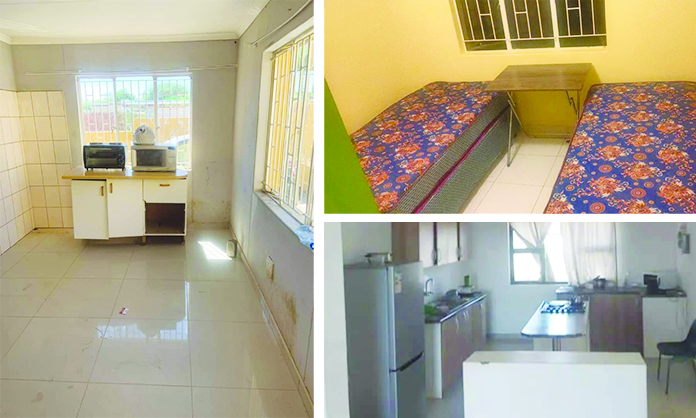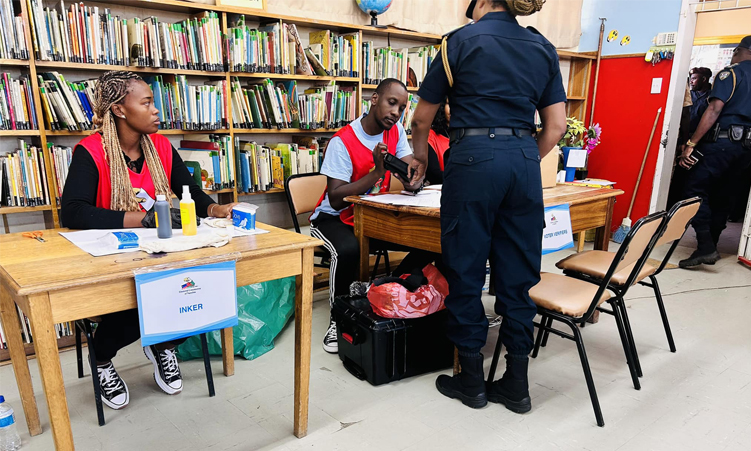Wilma Cloete is a fourth-year student at the University of Namibia (Unam). Like many students, she is enthusiastic about finishing her studies and venturing into professional life.
So far, however, it has not been easy studying in Windhoek, where accommodation and transport costs are steep, even for those with a regular income.
Cloete told The Namibian this week that Windhoek accommodation is so expensive, many students are forced to either commute from towns like Okahandja or engage in risky activities to make ends meet.
“I recently decided to commute from Okahandja to Windhoek, but I can’t even afford to pay the monthly transport fee of N$1 700 and have been absent from classes.”

Cloete said the financial strain doesn’t just affect budgets but impacts mental health and academic achievement too.
She urged the Namibia Student Financial Assistance Fund (NSFAF) to consider disbursing non-tuition fees earlier in the semester.
“I’m recommending that NSFAF pays the senior students immediately as the academic year commences, because the delay in non-tuition fees contributes to financial stress.”
Cloete’s predicament echoes that of many others studying in the capital, such as Natalia Nandjiwa, who says university accommodation, both on and off campus, often pose financial difficulties for NSFAF-funded students, with refunds typically insufficient to cover living expenses and food.
“The timing of refunds often presents obstacles, especially when classes commence before financial assistance is available. This can create a burden for us students who rely on these funds for transportation and sustenance.”
She said shared rooms have become the norm, leaving little room for comfort or pursuing entrepreneurial endeavours.
“The financial strain and limited housing options faced by us, particularly those reliant on NSFAF funding, underscore the formidable challenges of pursuing higher education in the country,” she said.
Nandjiwa spends N$2 500 on rent per month, she said. In addition, she spends N$624 for taxis, N$500 on food, N$400 on cosmetics and N$300 or more on data.
“So, monthly I spend N$4 324, while NSFAF only pays N$2 400 per month.”
Fourth-year Unam student Johanna Jacob says as a firstborn daughter, she faces tremendous burdens, particularly after being chased out of the house she was living in.
“My cousin that I was first staying with passed on in 2021 due to the coronavirus. That’s when life started showing me flames as I was chased out the house by the younger brother of my late cousin. I started renting in a shack at Okuryangava but I had to move because I couldn’t pay N$900, so I moved to Greenwell, where I got a shack for N$600.”
According to Jacob, her younger sister joined her in the same year because she was in her first year at the same institution.
“Nothing is easy. Last year we moved again to another shack because the rent had increased since my sister joined me. We moved again to another one which was better, just six months in and the landlord increased [the rent] again,” said Jacob.
ALTERNATIVES
The latest fee reports from Unam and the Namibia University of Science and Technology (Nust) indicate that while it may be cheaper to live on campus, it is still very costly.
Unam students have to pay N$29 000 annually for a single room, while a double room costs N$14 400, which is significantly cheaper than N$46 040 paid by Nust students for a single room with a balcony and N$41 040 for a double room. This is in addition to N$11 520 for compulsory meals per semester.
When looking at private residences, research conducted by The Namibian shows that a single room ranges from N$3 998 to N$5 800, while a double room (sharing) costs between N$2 000 and N$3 985.
These amounts exclude deposits that students are required to pay, which usually fall within the ranges of N$500 to N$1 000.
COLLABORATIVE EFFORTS NEEDED
Landless People’s Movement Youth and Student Command Element president Duminga Ndala called for collaboration between universities and the private sector in terms of rental prices.
“Universities should partner with private companies to offer subsidised student housing programmes with reduced rent and financial aid for accommodation costs,” said Ndala.
Ndala advocates rent control policies to be put in place to prevent the exploitation of students due to high demand.
“Implementing rent control policies would prevent landlords from drastically increasing rent, ensuring affordability for students,” said Ndala.
Additionally, as an organisation, they advocate establishing satellite campuses closer to students’ hometowns, reducing the need for expensive accommodation.
Namibia National Students Organisation (Nanso) spokesperson Dorthea Nangolo criticised the government’s lack of progress on a promised student village close to Unam.
“If you remember in the 2016 budget, the government spoke of a student village, but today there’s no sign of it. We are advocating to address the use of accommodation,” said Nangolo.
She added that Nanso advocates the registration of all student accommodation providers.
“These registered spaces would have a rent cap to ensure fair pricing for students,” said Nangolo.
Additionally, she said NSFAF non-tuition fees need to be increased to a level that realistically covers student needs, including accommodation, transportation and food.
Unam spokesperson Simon Namesho said the university is committed to supporting students in recognition of their financial challenges.
“While 60% of Unam’s students receive funding through NSFAF, bursaries or foundations, which covers their hostel fees, the university recognises the struggles of self-funded students,” said Namesho.
He added that Unam provides 10 hostel rooms at no charge to students with demonstrated financial hardship. These rooms function as temporary housing, allowing students to transition to paid options as they secure funding.
“Applicable at all 12 Unam campuses, the Student Assistance Fund offers financial aid to students struggling with accommodation costs. Though the fund has limitations, it has been able to help a lot of students,” said Namesho.
Unam has also implemented reduced hostel rates and a new flexible payment structure, he added.
Stay informed with The Namibian – your source for credible journalism. Get in-depth reporting and opinions for
only N$85 a month. Invest in journalism, invest in democracy –
Subscribe Now!






